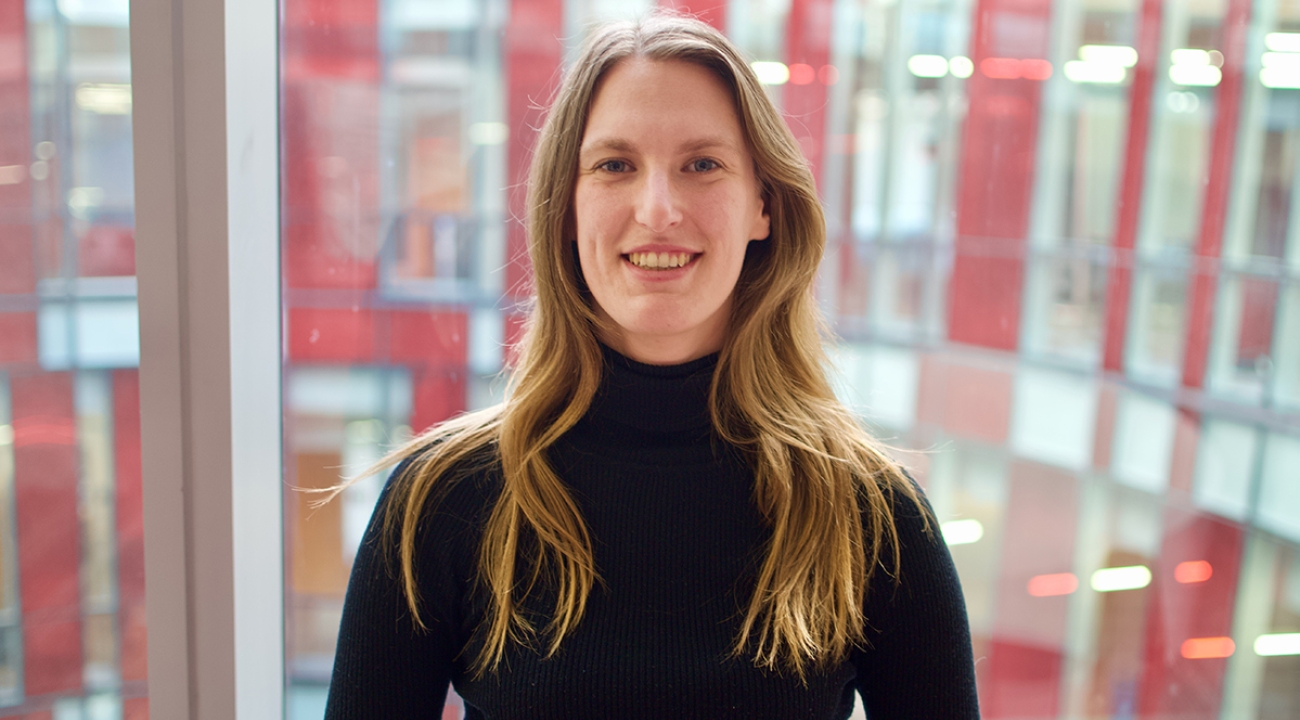Elizabeth Bennewitz, a first-year physics graduate student, has received a Department of Energy Computational Science Graduate Fellowship(link is external). Bennewitz is one of 33 recipients in 2022—the largest number of students this program has ever selected in a year.
The fellowships provide financial support, including tuition and a stipend, to each fellow for up to four years of their education. Additionally, Bennewitz and the other recipients will gain practical experience working in a DOE laboratory for three months.
“I am very honored to receive this fellowship and am grateful for the freedom it gives me to explore my interests in quantum information and computing,” Bennewitz says. “I'm also very thank Elizabeth Bennewitz (credit: Dan Spencer)ful for all the support and guidance I received from my professors and peers along the way at Bowdoin College, Perimeter(link is external) and here at Maryland.”
Elizabeth Bennewitz (credit: Dan Spencer)ful for all the support and guidance I received from my professors and peers along the way at Bowdoin College, Perimeter(link is external) and here at Maryland.”
The fellowship is funded by the DOE's Office of Science(link is external) and the National Nuclear Security Administration's Office of Defense Programs(link is external) in order to train future leaders in the field of computational science.
“[The] Office of Science is proud to support the training of a diverse and accomplished group of students to become leaders among the next generation of computational scientists,” says Barbara Helland, DOE Associate Director of Science for Advanced Scientific Computing Research, in a press release. “As evidenced by the success of the current CSGF alumni, the new fellows’ research will advance efforts in a wide range of science and engineering topics that benefit Administration priorities and the American people.”
Bennewitz is working with Joint Quantum Institute and Joint Center for Quantum Information and Computer Science (QuICS) Fellow Alexey Gorshkov. She has chosen to research large collections of interacting quantum particles—called many-body quantum systems. The physics of quantum interactions is an area of cutting-edge research and is important to quantum computer technologies. Many-body quantum interactions can also be used to develop simulations to explore challenging problems in materials science and chemistry.
“In my research, I look forward to using high-performance computing techniques to further our understanding of quantum systems as well as studying the high-performance computing capabilities of quantum systems themselves,” Bennewitz says.
In her first year as a graduate student, Bennewitz has started exploring ways that quantum simulators might help researchers understand the interactions that are responsible for holding particles together to form the nuclei that are the cores of atoms.
“Echoing my thoughts from when Elizabeth was named a finalist for the Hertz fellowship, I'm again very happy for Elizabeth, and I'm again excited and honored that she chose to work with my group,” Gorshkov says.
Original story by Bailey Bedford: https://jqi.umd.edu/news/jqi-graduate-student-receives-doe-fellowship